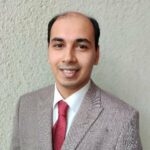What is a Type 1 Choledochal Cyst? Symptoms, Diagnosis, and Treatment Explained
A Type 1 choledochal cyst is a rare but significant congenital condition affecting the bile ducts, which act as essential pathways for bile flow from the liver to the intestines. Understanding this condition is crucial, as early diagnosis and treatment can help prevent serious health complications.

What is a Type 1 Choledochal Cyst?
A Type 1 choledochal cyst is a cystic dilation of the extrahepatic bile duct—the bile duct located outside the liver. Essentially, the duct becomes abnormally swollen or enlarged. This condition is present from birth but may not cause evident symptoms until later in life.
Type 1 choledochal cysts are the most common type, accounting for about 80-90% of all choledochal cyst cases. If left untreated, the cyst can disrupt bile drainage, leading to complications like infections, inflammation, or an increased risk of bile duct cancer.
Key Features of Type 1 Choledochal Cysts
What Makes Type 1 Unique?
Type 1 choledochal cysts differ from other types because they exclusively involve the common bile duct. While other types of choledochal cysts may affect the gallbladder or intrahepatic (inside the liver) ducts, Type 1 cysts are located in the bile duct outside the liver.
Size and Location
These cysts vary in size but are generally found in the extrahepatic bile ducts. Some individuals may remain asymptomatic for years, while others experience noticeable symptoms due to bile duct obstruction or infection.
Symptoms of Type 1 Choledochal Cysts
Type 1 choledochal cysts can cause a range of symptoms that vary in severity based on the size of the cyst and whether complications such as infections have developed.
Common Symptoms
- Abdominal Pain: This is one of the most frequent complaints among individuals with choledochal cysts, often related to bile duct blockage or inflammation.
- Jaundice: Yellowing of the skin and eyes caused by an accumulation of bile in the bloodstream.
- Nausea and Vomiting: Caused by disrupted digestion due to bile drainage issues.
- Dark Urine and Pale Stools: Signs of obstructed bile flow.
- Recurrent Fever or Chills: These may indicate infections such as cholangitis (bile duct infection).
When to Seek Medical Attention
If symptoms like persistent abdominal pain, jaundice, or recurring fever occur, it’s essential to consult a doctor immediately. Sudden, severe pain should always be treated as a medical emergency.
Experiencing persistent abdominal pain, jaundice, or recurring fever? Consult Dr. Aditya Kulkarni, Pune’s top specialist in bile duct conditions, today!
How is Type 1 Choledochal Cyst Diagnosed?
Diagnosing a Type 1 choledochal cyst typically involves imaging tests to evaluate the bile ducts and rule out other conditions.
Common Diagnostic Methods
- Ultrasound: A noninvasive and effective initial test to identify bile duct abnormalities.
- Magnetic Resonance Cholangiopancreatography (MRCP): An advanced imaging technique that provides detailed views of the bile duct system.
- CT Scan: Helps assess cyst size and identify complications like inflammation or infection.
- Endoscopic Retrograde Cholangiopancreatography (ERCP): While less commonly used for diagnosis alone, ERCP allows for visualization and, in some cases, therapeutic intervention.
Early and accurate diagnosis is crucial for planning the right treatment and avoiding complications.
Treatment Options for Type 1 Choledochal Cysts
Surgical intervention is considered the definitive and most effective treatment option for Type 1 choledochal cysts.
Surgical Treatment
The main goal of surgery is to:
- Remove the cyst: This eliminates the source of complications like infection or cancer risk.
- Reconstruct bile flow: Surgeons connect the remaining bile duct to the intestine (a procedure called hepaticojejunostomy) to allow normal bile drainage.
Types of Surgical Approaches
- Open Surgery: A traditional approach requiring a larger incision. It is still effective but requires a longer recovery period.
- Minimally Invasive Surgery (Laparoscopic or Robotic): These techniques use smaller incisions, resulting in less pain, a quicker recovery, and reduced scarring.
Post-Surgery Care
- Monitoring and Follow-Up: Regular imaging and blood tests ensure that bile flow is restored and that there are no complications.
- Healthy Lifestyle: Maintaining a healthy diet and following medical advice helps with post-surgery recovery.
Prognosis
The prognosis after surgical removal of a Type 1 choledochal cyst is excellent. With early intervention and proper follow-up care, patients usually enjoy normal bile duct function and overall good health.
Risks and Complications if Left Untreated
Failure to treat a Type 1 choledochal cyst can lead to serious health issues, including:
- Bile Duct Cancer (Cholangiocarcinoma): One of the most severe risks, especially in untreated cases.
- Recurrent Cholangitis: Persistent bile duct infections can lead to chronic inflammation and scarring.
- Biliary Obstruction: Complete blockage of bile flow can result in jaundice, infection, or severe abdominal pain.
- Pancreatitis: Swelling and inflammation of the pancreas caused by bile fluid backflow.
This makes timely diagnosis and treatment critical to preventing long-term consequences.
Final Thoughts
A Type 1 choledochal cyst is a curable condition when treated effectively through surgical removal. Early intervention not only resolves symptoms but also prevents severe complications like bile duct infections or cancer. With modern surgical techniques and proper post-surgery care, individuals can expect excellent outcomes and a return to a healthy quality of life.
If you or someone you know is experiencing symptoms like persistent abdominal pain, jaundice, or recurring infections, don’t delay—consult a healthcare provider for further evaluation. Early treatment is key to ensuring a positive outcome.
Take action today and safeguard your health!

Dr. Aditya Kulkarni
MS, DNB, FRCS, MCh (Surgical Gastroenterology & GI Oncology)
Dr. Aditya Kulkarni is a Consultant of Laparoscopic and Robotic Gastrointestinal, Hepato-biliary-pancreatic, and Cancer Surgeon at the Renowned Oasis Surgery Clinic Pune.
